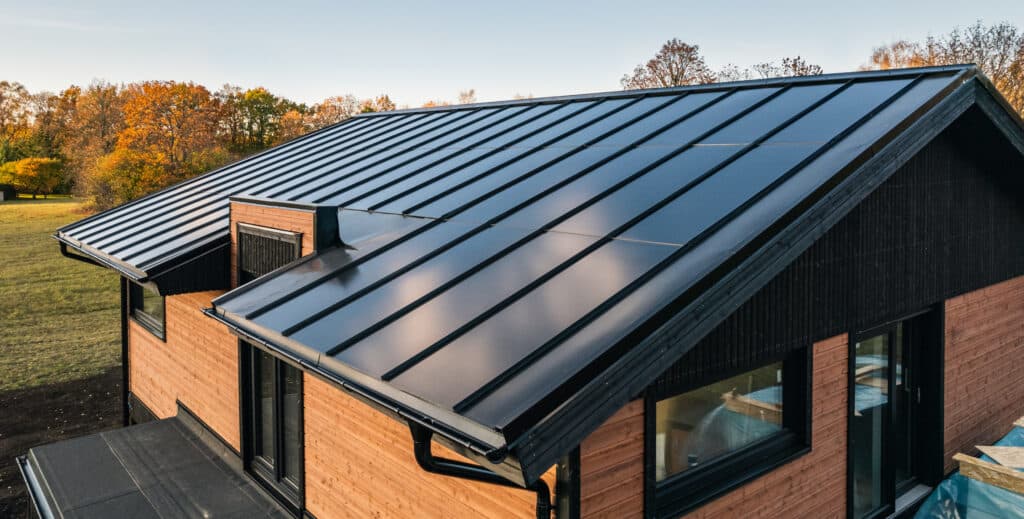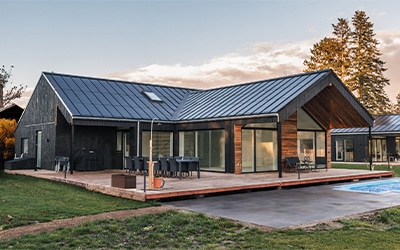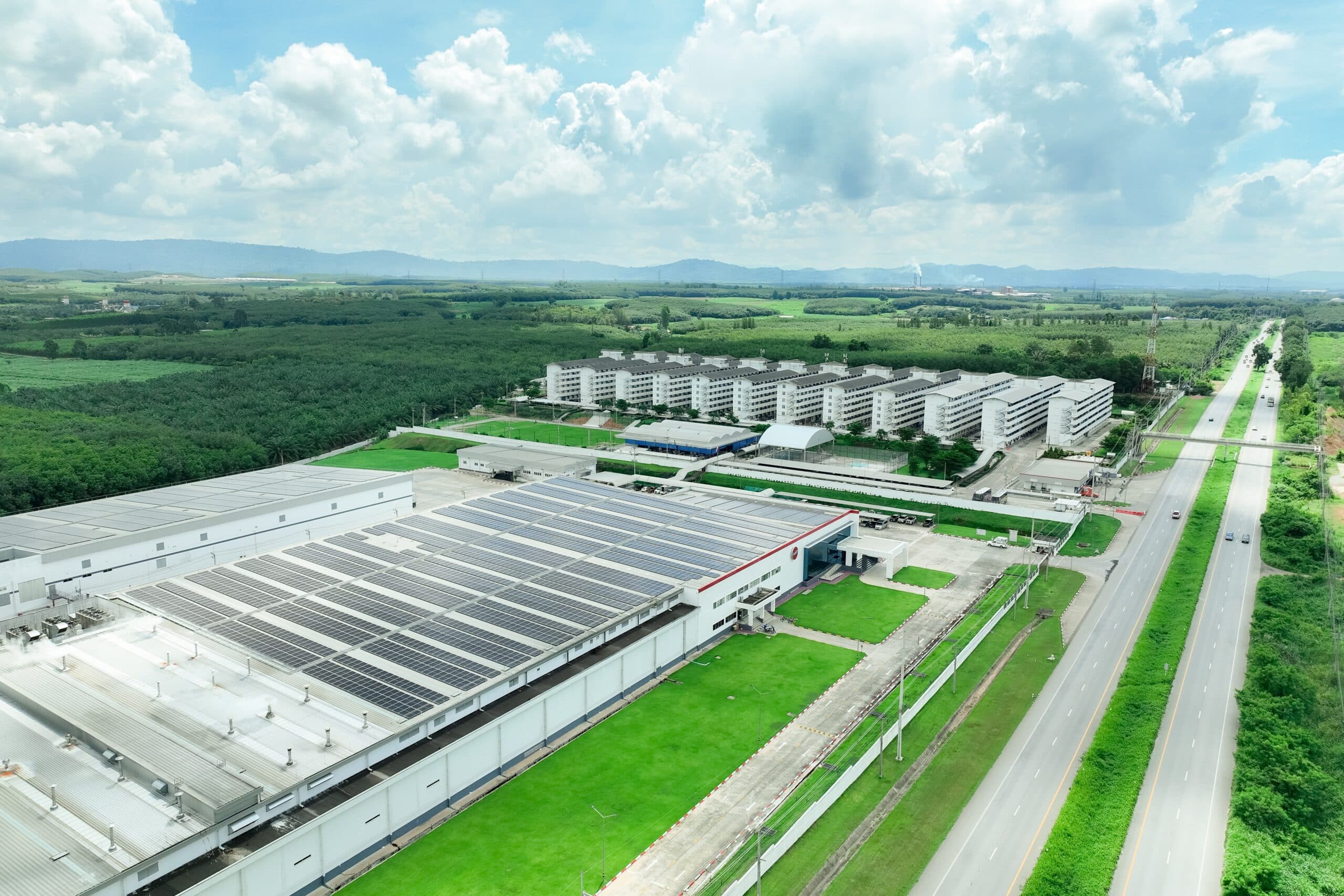Are you considering using an air-source heat pump to keep your home warm? If so, you might wonder how these energy-efficient systems work and if they suit the colder UK climate.
In this article, we’ll deep-dive into everything you need to know about heat pump functionality, efficiency and maintenance so you can feel confident that this is the right system for your home.
Let’s get into it.
How Do Air Source Heat Pumps Work?
Air source heat pumps extract heat from the outside air and transfer it into your home or building.
They use a refrigerant that absorbs the heat from the outdoor air and then compresses it to increase its temperature. This heated refrigerant is circulated inside your house through a network of pipes or ducts, releasing the warmth into different rooms.
Do Air Source Heat Pumps Work In Cold Weather?
Air source heat pumps are designed to operate efficiently even in cold weather conditions.
During winter, when the outdoor temperature drops significantly, air source heat pumps can still extract enough latent heat from the air to provide warmth indoors.
The system constantly monitors the outdoor temperature and adjusts its operation accordingly. Even if there is frost on the external unit, modern systems are equipped with defrosting mechanisms that ensure efficient implementation throughout winter.
So rest assured, air source heat pumps are designed to work effectively in colder climates and keep you cosy during those chilly winter days.
Do Air Source Heat Pumps Work In Winter?
Yes, air-source heat pumps are effective even during the winter months.
Even in colder temperatures, there is still heat energy present in the air that can be utilised. Air source heat pumps are designed to operate efficiently in a wide range of temperatures, including below-freezing conditions.
The efficiency of an air source heat pump may decrease slightly as the temperature drops, but they are still capable of producing enough warmth to keep your home comfortable throughout the winter season.
It’s important to note that regular maintenance and proper insulation are essential for optimal performance during colder weather.
Do Air Source Heat Pumps Require A Backup Heating System?
It depends on where you live and the specific climate conditions. In areas with extremely cold winters (where the climate often drops well below freezing), it’s recommended to have a backup heating system such as an electric resistance heater or a furnace.
This ensures you have a reliable heat source even during extreme weather conditions when the heat pump’s performance may be limited. However, many modern air source heat pumps are specifically designed for colder climates – so be sure to look into all the options and speak to an expert before committing.
Can Air-Source Heat Pumps Also Provide Cooling?
Not only can air-source heat pumps provide heating in the winter, but they can also cool your home during the summer months. This dual functionality makes them a versatile and cost-effective option for maintaining comfortable indoor temperatures throughout the year. Here are three ways in which air-source heat pumps can provide cooling:
- Reversing the refrigeration cycle: Air source heat pumps extract heat from the outside air and transfer it inside to warm your home. However, during hot weather, they can reverse this process by extracting heat from indoors and releasing it outside, effectively cooling your home.
- Using a refrigerant system: Air source heat pumps utilise a refrigerant system that circulates a coolant between an outdoor and indoor unit. When cooling is required, the system absorbs heat from inside your home and releases it outdoors through the outdoor unit.
- Adjustable fan speed: Many air source heat pump models offer adjustable fan speeds, allowing you to control how quickly cool air is circulated throughout your home. This feature ensures you can tailor the cooling effect to your desired comfort level.
With these features, air source heat pumps provide efficient heating in winter and offer reliable and energy-efficient cooling during summer months. Their ability to warm and cool homes makes them an excellent choice for homeowners looking for a year-round solution for temperature control.
Are Air Source Heat Pumps Energy-Efficient?
If you’re wondering about the energy efficiency of air source heat pumps, you’ll be glad to know that they’re indeed a highly efficient heating and cooling solution.
In terms of efficiency, air-source heat pumps can produce more energy than they consume, making them a great choice for reducing your carbon footprint and energy bills.
One reason why air source heat pumps are so energy-efficient is that they don’t generate heat through combustion as traditional heating systems do. Instead, they rely on electricity to power the refrigeration process that extracts and transfers heat.
This means that for every unit of electricity consumed by an air-source heat pump, several units of heat can be produced and distributed throughout your home.
Additionally, modern models often come with advanced features such as variable speed compressors and smart controls that optimise the system’s performance based on current conditions. These technologies further enhance the system’s overall efficiency by allowing it to adjust its output according to your home’s specific heating or cooling needs.
If you’re concerned about energy efficiency when considering an HVAC system, air-source heat pumps are worth considering. They provide effective heating and cooling year-round and offer significant savings in energy consumption compared to other heating systems.
With their ability to harness renewable outdoor air as a primary thermal energy source, these pumps can help you reduce your environmental impact while keeping your indoor climate comfortable all year.
How Efficient Are Air Source Heat Pumps? Tips For Improving Efficiency
Whilst Air Source Heat Pumps tend to be very efficient, there are some key ways to maximise their efficiency year-round.
To further enhance the efficiency of your air source heat pump during winter, there are two things you can do:
- Set your thermostat at a moderate temperature: Keeping your thermostat set between 18°C (65°F) and 20°C (68°F) during winter will help optimise energy usage without sacrificing comfort.
- Use programmable thermostats: These devices allow you to schedule temperature changes based on when you’re away from home or sleeping, helping save energy when heating isn’t as needed.
By following these tips and ensuring proper insulation and regular maintenance, you can maximise the efficiency of your air source heat pump throughout the winter season.
Do Air Source Heat Pumps Require Maintenance?
Regular maintenance is essential to keep your air source heat pump running efficiently and effectively. Like any other heating or cooling system, air-source heat pumps require upkeep to ensure optimal performance.
Replacing Air Filters
The most important maintenance task is regularly cleaning or replacing the air filters. Dirty filters can restrict airflow and reduce the efficiency of your heat pump. It’s recommended to check the filters at least once a month and clean or replace them as needed.
Cleaning Your Unit
In addition to filter maintenance, it’s also important to inspect and clean the outdoor unit of your air source heat pump. Over time, leaves, dirt, and debris can accumulate around the unit, obstructing airflow and reducing efficiency. You should clear any obstructions around the unit and gently wash it with a hose every few months to remove dirt build-up.
Checking Refrigerant Levels
Regularly checking and maintaining the refrigerant levels is another crucial aspect of keeping your air source heat pump in good condition. Low refrigerant levels can cause decreased performance and potential damage to the compressor. If you notice any signs of refrigerant leakage, such as reduced cooling or heating capacity, it’s important to contact a professional technician who can identify and fix the issue.
Hire A Professional
Regular maintenance is crucial for keeping your air source heat pump running efficiently. Schedule annual inspections with a professional HVAC technician to ensure all components work properly. They’ll check for any leaks in the ductwork, clean or replace filters, and inspect the outdoor unit for debris or obstructions.
By performing these simple maintenance tasks regularly, you can ensure that your air source heat pump continues working efficiently throughout winter and beyond. Regular maintenance not only helps maximise energy efficiency but also extends the lifespan of your system, saving you money on repairs in the long run.
Are There Government Grants For Air Source Heat Pumps?
Yes, a selection of Government grants can help you afford air-source heat pumps for your property. These grants can be used against the total cost of a heat pump, making them more affordable and accessible for homeowners in the UK.
The UK Government aims to reach Net Zero by 2050 and, as such, has begun a scheme to encourage people to replace all gas boilers with clean energy solutions. Depending on where you live, there are a number of grants and loans to help you do this, including:
The Boiler Upgrade Scheme (England & Wales)
The Boiler Upgrade Scheme can help you to afford a new air source heat pump for your property. It offers homeowners £5,000 to help them upgrade from a gas or fossil fuel boiler to a low-carbon alternative like a heat pump.
To be eligible for the grant, you must:
- Own the property you’re applying for (including if it’s a business, a second home, or a property you rent out to tenants).
- Have installed (or plan to install) your new heating system on or after 1 April 2022.
- Be replacing fossil fuel heating systems (such as oil, gas or electric).
You’re still eligible if you’ve already had funding to make your property more energy efficient, for example, by insulating it. However, you must meet the above criteria to apply for the grant.
Home Energy Scotland
You can apply for a £7,500 grant from Home Energy Scotland if you live in Scotland. You can also get a £1,500 top-up if you live in a rural area.
The Scottish Government funds the Home Energy Scotland Grant and Loan funding scheme, helping homeowners to take their first steps towards sustainable options. Homeowners can access the following funding through the scheme:
- Up to £15,000 to install a heat pump (up to £7,500 as a grant plus up to £7,500 as an optional loan, or £9,000 grant plus £7,500 optional loan if the household qualifies for the rural uplift)
- Grants up to 75% of the combined cost of improvements to improve home energy efficiency (up to £7,500 as a grant, or £9,000 if the household qualifies for the rural uplift)
To apply, you must contact Home Energy Scotland to ensure eligibility and begin the application process.
Embrace A Sustainable Future With Smartly Energy
Overall, air-source heat pumps offer a practical and effective solution for year-round comfort in your home. Whether you need to warm up during winter or cool down in summer, these systems have you covered.
With their energy efficiency and long-term cost savings, they’re certainly worth considering as a heating and cooling option for any homeowner. With one of these dynamic systems, you can enjoy comfortable temperatures throughout the year while reducing your carbon footprint.
Here at Smartly Energy, we’re passionate about helping our customers embrace sustainable energy. We offer a fantastic range of air–source heat pumps, solar panels and electric charging solutions from leading European manufacturers.
Whether you’re shopping for a domestic property or commercial business, our renewable experts will be happy to help you find a suitable system for your space.
Contact us to discuss the options we have available & embrace green energy solutions today!



